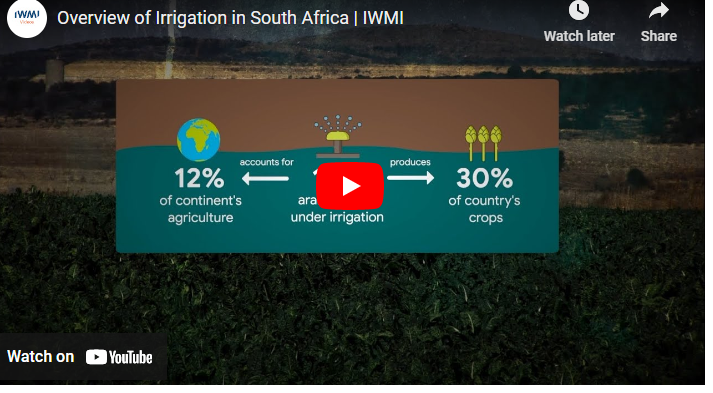Zimbabwe is a country with a thriving agricultural sector, and animal farming is a significant contributor to its economy.
With a high demand for animal products such as meat, milk, and eggs, animal farming presents an excellent opportunity for entrepreneurs to tap into a lucrative market.
In this article, we will explore ten profitable animal farming ventures in Zimbabwe, including poultry farming, cattle farming, pig farming, goat farming, fish farming, beekeeping, sheep farming, rabbit farming, duck farming, and quail farming.
10 Profitable Animal Farming In Zimbabwe
Among the numerous animal farming practiced in Zimbabwe, we’ve been able to come up with 10 of them that are highly profitable. They include:
- Cattle Farming (Dairy and Beef)
- Goat Farming
- Turkey Farming
- Fish Farming
- Chicken Farming
- Sheep Farming
- Pigs Farming
- Rabbit Farming
- Beekeeping
- Grasscutter Farming
#1. Cattle Farming (Dairy and Beef)
Cattle farming is a profitable animal farming venture in Zimbabwe, and it is an excellent choice for farmers looking for a long-term investment.
The demand for beef and dairy products is high in Zimbabwe, making it a potentially lucrative business. With proper management and care, you can build a thriving cattle farming business that can provide a steady income stream.
Dairy cows are an excellent choice for farming in Zimbabwe, as they are easy to manage and can produce a significant amount of milk. Beef cattle can also be profitable, especially if you raise them for the market.
The projected profits from cattle farming can vary, depending on the size of the operation, the breed of cattle, and the market demand.
However, with proper management and care, the profits can be significant, making cattle farming a great investment.
#2. Goat Farming
Goat farming in Zimbabwe is a lucrative business opportunity due to the high demand for goat meat and milk.
Goats are hardy animals that are easy to care for and can provide a steady source of income for farmers.
With a well-planned business strategy and proper management, a goat farmer in Zimbabwe can earn a significant income.
According to industry reports, a goat farmer in Zimbabwe can earn an average net income of $500 to $1,500 per month, depending on the size of the operation.
#3. Turkey Farming:
Turkey farming is another profitable animal farming venture in Zimbabwe. They are easy to manage and can be raised for meat production.
Turkey meat is a popular delicacy in Zimbabwe, especially during festive periods, making it a lucrative business opportunity.
You’ll need to consider factors such as the breed of turkeys, their feed requirements, and their housing needs.
The projected profits for turkey farming in Zimbabwe can be substantial, with potential earnings of up to $15,000 per year.
With proper management and care, you can build a successful turkey farming business in Zimbabwe that can provide a steady income stream.
#4. Fish Farming
Fish farming is a profitable animal farming venture in Zimbabwe that can provide a steady income stream. Zimbabwe has a significant number of natural water bodies that can be used for fish farming, and the demand for fish is high in the country.
Fish farming requires some investment in terms of land, equipment, and fish stock. With proper management and care, you can build a thriving fish farming business that can provide a steady income stream.
The projected profits depend on the size of your farm and market demand, but fish farming can be highly profitable with a profit margin of up to 70%.
#5. Chicken Farming
If you’re considering animal farming as a business in Zimbabwe, poultry and goat farming are two profitable ventures you should consider.
Poultry farming in Zimbabwe is highly profitable due to the high demand for chicken meat and eggs, which are staples in the Zimbabwean diet.
With the right knowledge and management, you can easily start a poultry farm and achieve significant profits.
According to industry reports, a poultry farmer in Zimbabwe can earn an average net income of $2,000 to $4,000 per month, depending on the size of the operation.
#6. Sheep Farming
Raising sheep is a profitable animal farming venture that you can consider in Zimbabwe. Sheep are relatively easy to manage and require less space compared to other large animals such as cattle.
The wool produced from sheep can be sold, and the meat is in high demand, making it a profitable venture. The demand for sheep products such as wool and meat is high, which makes it a lucrative business in Zimbabwe.
You can expect to make a significant profit from sheep farming if you manage the venture correctly.
The projected profits vary depending on the scale of the operation, but with proper management, you can expect to make a good income.
#7. Pigs Farming
Pig farming is another profitable animal farming venture that you can consider in Zimbabwe. Pigs are easy to manage and require little space compared to other large animals, making it ideal for small-scale farmers.
The demand for pork products is high in Zimbabwe, which makes pig farming a profitable venture.
Pigs can produce a lot of offspring, which means that there is a high potential for growth in the business.
With proper management, you can expect to make a significant profit from pig farming in Zimbabwe.
The projected profits vary depending on the scale of the operation, but with proper management, you can expect to make a good income.
#8. Rabbit Farming
Rabbit farming is a profitable animal farming venture that you can consider in Zimbabwe. Rabbits are easy to manage and have a short gestation period, which means they can produce many offspring in a short amount of time.
Rabbit meat is a delicacy in Zimbabwe, and there is a high demand for it, which makes it a profitable business opportunity.
In addition, rabbit manure is an excellent fertilizer, which can be sold to other farmers or used to fertilize your own crops.
With proper management and care, you can build a successful rabbit farming business that can provide a steady income stream.
You can project profits of up to $2,000 per month from selling rabbits, manure, and related products.
#9. Beekeeping
Beekeeping is a profitable animal farming venture in Zimbabwe, and it’s an excellent choice for those looking for a low-maintenance and low-cost investment.
Beekeeping can provide a steady source of income, as the demand for honey and other bee products is high in the country.
Bees play a critical role in pollinating crops, which can also benefit farmers in the area. With proper management and care, beekeeping can yield significant profits, and it is a relatively easy business to start.
The projected profits from beekeeping will depend on factors such as the size of the operation, the type of bees used, and the market demand.
However, with the right knowledge and management, beekeeping can provide a profitable and sustainable source of income in Zimbabwe.
#10. Grasscutter Farming
Grasscutters are also known as cane rats and are native to Africa. They are easy to manage and can be raised in a small space, making them ideal for small-scale farmers.
Grasscutter meat is a delicacy in Zimbabwe, and there is a high demand for it, which makes it a profitable business opportunity.
In addition, grasscutter fur is also in high demand, which can be sold to garment manufacturers. With proper management and care, you can build a successful grasscutter farming business that can provide a steady income stream.
You can project profits of up to $2,500 per month from selling grasscutters, fur, and related products.
Some Key Factors to consider when venturing into Animal Farming
Key Factors to Consider:
- Knowledge and Skills: Having the necessary knowledge and skills is essential when venturing into animal farming. This includes knowledge of animal health, nutrition, and breeding techniques.
- Capital Investment: Animal farming requires a significant investment in capital, including land, equipment, and animals. It is important to have a solid business plan and financial projections to ensure profitability.
- Market Demand: It is essential to research the market demand for the animal products you intend to produce to ensure profitability.
- Access to Inputs: Access to quality feed, medicine, and other inputs is crucial for the success of animal farming.
- Legal Requirements: Understanding the legal requirements for animal farming, including permits and licenses, is essential for compliance and avoiding legal issues.
Benefits of Animal Farming in Zimbabwe
- Income Generation: Animal farming provides an opportunity for income generation, especially for small-scale farmers who can produce animal products for sale.
- Food Security: Animal farming contributes to food security by providing a source of animal protein such as meat, milk, and eggs.
- Employment Creation: Animal farming provides employment opportunities, both directly and indirectly, in areas such as animal health services, feed production, and transportation.
- Diversification of Agriculture: Animal farming offers a diversified source of income and helps to spread risk in agriculture.
- Sustainable Agriculture: Animal farming can contribute to sustainable agriculture by providing manure for crop production, thus reducing reliance on chemical fertilizers.
By considering these factors and understanding the benefits of animal farming, you can make an informed decision when venturing into animal farming in Zimbabwe.
Financial Requirements Animal Farming in Zimbabwe
- Land: Land is a significant investment in animal farming, and the cost of land varies depending on the location and size of the operation.
- Capital for Infrastructure: Infrastructure includes building animal housing, purchasing equipment, and providing utilities such as water and electricity.
- Cost of Animals: The cost of animals varies depending on the type and breed of animals, as well as the quantity required.
- Input Costs: Input costs include feed, medicine, and other supplies necessary for animal farming.
- Labor Costs: Labor costs include wages for employees or contractors who may be required for animal care, feeding, and other tasks.
How to Start Animal Farming in Zimbabwe
- Conduct Market Research: Conduct market research to identify the demand for animal products and identify potential customers.
- Develop a Business Plan: Develop a business plan that outlines the financial requirements, expected income, and marketing strategies.
- Acquire Necessary Permits: Acquire necessary permits, licenses, and certifications from relevant authorities.
- Secure Financing: Secure financing through loans, grants, or other means to fund the startup costs.
- Purchase Land and Equipment: Purchase land, equipment, and animals necessary for the operation.
- Hire Personnel: Hire personnel as necessary and ensure they are adequately trained and equipped to perform their roles.
- Implement Animal Care Plan: Implement an animal care plan to ensure the health and well-being of the animals.
Revenue Potentials Animal Farming in Zimbabwe
- Diversification: Animal farming provides an opportunity for farmers to diversify their income streams and spread risk.
- High Demand: There is a high demand for animal products in Zimbabwe, creating a ready market for farmers.
- Export Opportunities: Zimbabwean animal products have potential export opportunities in the regional and international markets.
- Value Addition: Value addition to animal products such as processing and packaging can increase revenue potential for farmers.
Challenges Animal Farming in Zimbabwe
- Limited Access to Finance: Access to finance is limited, making it difficult for farmers to acquire the necessary capital to start or expand their operations.
- Poor Infrastructure: Poor infrastructure such as inadequate roads, water supply, and electricity makes it challenging to operate animal farming businesses in some areas.
- Lack of Information: Lack of information on animal health, breeding, and nutrition makes it difficult for farmers to manage their animals effectively.
- Climate Change: Climate change and erratic weather patterns such as droughts and floods can affect animal production and reduce revenue potential for farmers.
Best Practices of Animal Farming in Zimbabwe
- Good Animal Husbandry: Good animal husbandry practices such as proper nutrition, vaccination, and disease management are crucial for the health and productivity of animals.
- Value Addition: Value addition to animal products through processing and packaging can increase revenue potential for farmers.
- Record Keeping: Keeping records of animal health, breeding, and production can help farmers make informed decisions and improve their operations.
- Access to Information: Access to information on animal health, breeding, and nutrition can help farmers manage their animals effectively.
Disadvantages of Animal Farming in Zimbabwe
- Capital Intensive: Animal farming requires significant capital investment, making it inaccessible for some farmers.
- Labor Intensive: Animal farming is labor-intensive, requiring a lot of time and effort to manage animals properly.
- Health Risks: Animal farming can pose health risks such as zoonotic diseases, especially if proper hygiene and sanitation practices are not observed.
- Environmental Impact: Animal farming can have environmental impacts such as water and air pollution, especially if not managed properly
Most Profitable Livestock Small Farm
- Poultry: Chickens, ducks, and turkeys are all profitable options for small farms due to their low startup costs and high demand.
- Goats: Goats are easy to care for and require minimal space, making them an ideal option for small farms.
- Sheep: Sheep are low-maintenance animals and provide a steady source of income through wool and meat production.
- Bees: Beekeeping can provide a steady source of income through honey and beeswax production, and requires minimal space and investment.
Animal Husbandry Business Plan PDF
An animal husbandry business plan PDF should include an executive summary, market analysis, marketing plan, operations plan, financial projections, and a risk management plan.
It should also include information on the types of animals to be raised, breeding strategies, animal nutrition, and health management.
Livestock Farming Business Plan
A livestock farming business plan should include information on the types of animals to be raised, market analysis, marketing plan, operations plan, financial projections, and risk management plan.
It should also include information on breeding strategies, animal nutrition, and health management.
Types Of Animal Farming
- Poultry Farming: Raising chickens, ducks, turkeys, and other birds for meat, eggs, and feathers.
- Dairy Farming: Raising cows, goats, and sheep for milk and cheese production.
- Beef Farming: Raising cows, bulls, and oxen for meat production.
- Sheep Farming: Raising sheep for wool, meat, and milk production.
Most Profitable Livestock Per Acre
- Bees: Beekeeping can produce a high yield of honey and beeswax per acre, making it one of the most profitable options.
- Poultry: Chickens, ducks, and turkeys require minimal space and can produce high yields of meat and eggs per acre.
- Goats: Goats require minimal space and can produce high yields of meat and milk per acre.
- Sheep: Sheep require minimal space and can produce high yields of wool and meat per acre.
Conclusion
Animal farming is a profitable venture in Zimbabwe with a high demand for animal products. With proper research, planning, and management, entrepreneurs can take advantage of the various animal farming opportunities available in the country. Whether you choose to start small or big, animal farming can be a rewarding and lucrative business in Zimbabwe. By considering the ten animal farming ventures discussed in this article, you can make an informed decision and start your journey towards success in the animal farming industry in Zimbabwe.



